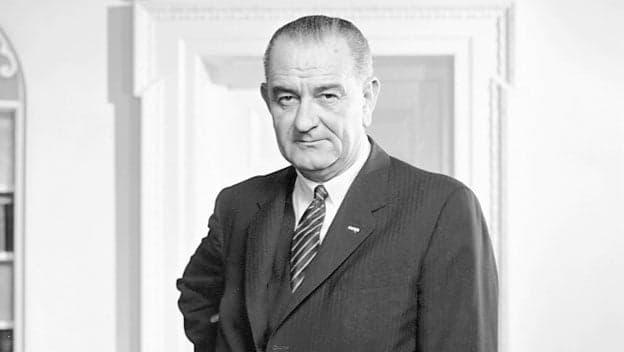On January 4, 1965, in his State of the Union address, President Lyndon Baines Johnson lays out for Congress a laundry list of legislation needed to achieve his plan for a Great Society. On the heels of John F. Kennedy’s tragic death, Americans had elected Johnson, his vice president, to the presidency by the largest popular vote in the nation’s history. Johnson used this mandate to push for improvements he believed would better Americans’ quality of life.
Following Johnson’s lead, Congress enacted sweeping legislation in the areas of civil rights, health care, education and the environment. The 1965 State of the Union address heralded the creation of Medicare/Medicaid, Head Start, the Voting Rights Act, the Civil Rights Act, the Department of Housing and Urban Development and the White House Conference on Natural Beauty. Johnson also signed the National Foundation of the Arts and Humanities Act, out of which emerged the National Endowment for the Arts and the National Endowment for the Humanities. Through the Economic Opportunity Act, Johnson fought a War on Poverty by implementing improvements in early childhood education and fair employment policies. He was also a strong advocate for conservation, proposing the creation of a green legacy through preserving natural areas, open spaces and shorelines and building more urban parks. In addition, Johnson stepped up research and legislation regarding air- and water-pollution control measures.
Under Kennedy, then-Vice President Johnson led the government’s quest to develop American excellence in the sciences. As president, the ongoing technology race with the Soviet Union spurred Johnson to continue the vigorous national program of space exploration begun by Kennedy. During Johnson’s presidency, the National Aeronautics and Space Administration (NASA) achieved the extraordinary and unprecedented accomplishment of orbiting a man around the moon.
Though many of Johnson’s programs remain in place today, his legacy of a Great Society has been largely overshadowed by his decision to involve greater numbers of American soldiers in the controversial Vietnam War.
READ MORE: LBJ's Great Society

